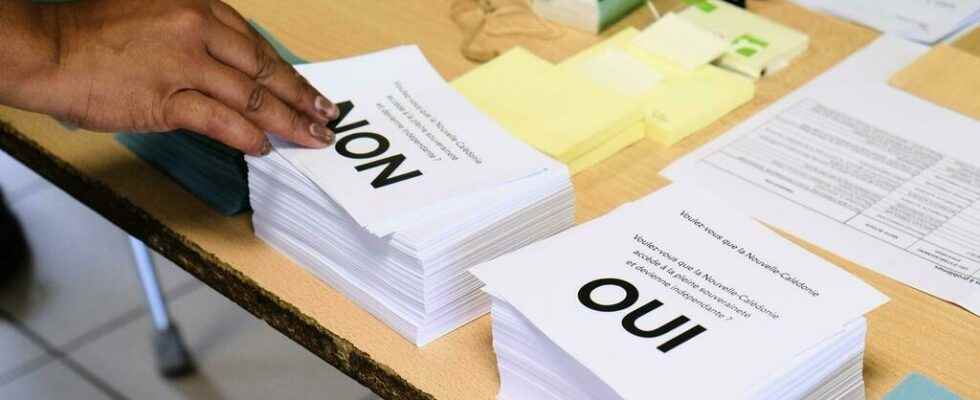The polling stations opened this Sunday at 7 a.m. in New Caledonia, 8 p.m. this Saturday in universal time. “ Do you want New Caledonia to gain full sovereignty and become independent? This is the question put to the voters of this French archipelago of Oceania enjoying a unique status. For this third and final ballot in the referendum process, not everyone can vote.
If the island is on pre-cyclone alert, New Caledonia began to vote under a bright sun this Sunday morning at 7 a.m. (local time), for its third and last referendum on independence. Without much suspense: the separatists decided to shun it for lack of having obtained the postponement, returning the choices for the archipelago of the Pacific Ocean to the post-French presidential election.
A total of 184,332 Caledonian voters are called to the polls. Only voters registered on the “ Special list of electors for consultation Can vote.
To be part of this list, it is necessary to prove a continuous residence in New Caledonia since at least December 31, 1994, to benefit from the customary Kanak civil status or to be born in New Caledonia and have their material and moral interests there.
An electoral body, fruit of the Nouméa agreement
This effectively excludes more than 35,000 voters from the electoral list valid for the other elections: presidential, legislative or municipal. These are mainly Europeans, who arrived in the archipelago after 1994.
This specific electoral body for the referendum is the result of the Nouméa agreement of 1998. Its aim is to avoid the right to vote for recently installed residents and thus to contain the “ settlement colonization »Denounced by the separatists.
The balance of power must remain the same as when the agreement was signed. This list is regularly debated, with some Caledonians denouncing their exclusion. In any case, it will lapse at the end of the voting operation, whatever the results.
“Fair campaign” impossible, according to the separatists
In the two previous referendums, organized in 2018 and 2020 under the Nouméa agreement, the no won, with 56.7% and then 53.3% of the vote.
This time, the separatists demanded the postponement of the poll to September 2022 due to the impossibility of “leading a fair campaign” because of the Covid-19 epidemic.
The territory, which had managed to escape it by closing its borders in early 2020, was caught by the virus in September, with a death toll of 280, mostly affecting the Kanaks.
All eyes on the day after
Faced with the government’s refusal to postpone the poll, the separatists of the Kanak and Socialist National Liberation Front (FLNKS) called on their supporters not to vote.
The Customary Senate, an institution that embodies traditional Kanak power, asked on Thursday “ Kanak citizens and Caledonian progressives to observe a national day of “Kanak mourning” December 12, 2021 by not going to the polling stations “.
For its part, the camp opposed to independence has tried to mobilize, but fears a collapse in participation compared to more than 80% in 2018 and 85% in 2020.
In this context, all eyes are already on the day after the referendum. Overseas Minister Sébastien Lecornu arrived in Nouméa on Friday, December 10 to prepare for this period of discussions. But the FLNKS and the Nationalists have already warned Thursday that they refused any meeting with the minister before the French presidential election, in April 2022.
♦ Nickel factories in bad shape
The Koniambo factory, symbol of the economic, geographic and ethnic rebalancing in favor of the Kanak populations, is accumulating technical problems. It produced only 17,000 tonnes in 2020, while it could produce 60,000. Management’s goal would be to reach 3,000 tonnes of nickel per month by June 2022. Unless the Swiss giant Glencore, co-owner of the plant, is not withdrawing. It would be a disaster for its 900 employees.
Société Le Nickel, a subsidiary of Eramet, the incumbent operator, is also in bad shape. In deficit, the factory is waiting for the implementation of a rescue plan intended to break the deadlock. It is finally the third plant, the Franco-Swiss Prony Resources that is doing well. At the heart of violence a year ago after its sale by the Brazilian Vale, the plant in the South produces unrefined nickel, intended for to the market for electric vehicle batteries. Its first customer is the Californian, Tesla.
► Read also : Guest France – Referendum in New Caledonia: “The result is known in advance” with the boycott of the separatists
